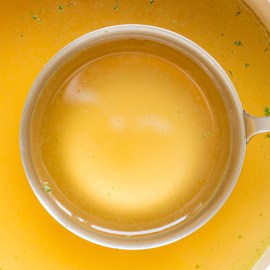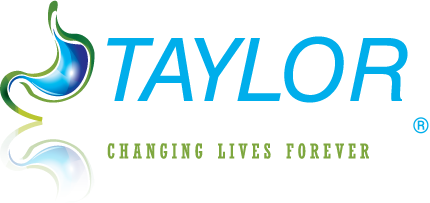Diet Stage 2—Liquids

The time it takes to reach stage two will vary by person and procedure. As a general rule, you will only be able to move on to the full liquid stage when you can consume clear liquids without experiencing any vomiting or nausea.
General timeframes for moving on to a full liquid diet after surgery are:
- Gastric Sleeve: 2 to 7 days
- Gastric Bypass: 2 to 7 days
- Gastric Band: 2 to 7 days
Though Dr. Taylor will provide specific dietary guidelines during each stage after surgery, your options during the full liquid stage may include:
- Broth
- Vegetable juice
- Certain protein shakes
- Diluted fruit sauces
- Skim milk
- Diluted sugar-free pudding, custard or yogurt
You will need to carefully select liquids during this stage and should stick to any guidelines given to you by Dr. Taylor. Generally, you will need to avoid:
- Too-thick liquids. A liquid is too thick if you can draw lines in it with a spoon. You may be able to add water or fat-free milk to dilute a liquid to an acceptable thickness.
- Chunky liquids. Chunky pieces in liquids should be blended or strained. This includes things like fruit-on-the-bottom yogurt.
- Sugary liquids. Sugar-packed liquids can slow your weight loss and lead to dumping syndrome and malnutrition. Such liquids include milkshakes, fruit juices and bottled teas.
- Carbonated liquids. These can cause irritation after any weight loss surgery and will need to be consistently kept out of your diet now and in the future.
Maintaining Nutrition
Your body will have the same nutritional needs during this stage and your dietary choices should reflect this. You will need to be especially careful to get enough protein after weight loss surgery, as it plays an instrumental role in healing and maintaining your muscle mass. Though you should always follow Dr. Taylor’s nutritional recommendations, a ballpark daily protein level is 60 to 90 grams.
Good nutritional choices during stage two may include:
- Protein shakes – Protein. To keep your protein levels up, you can try pre-packaged protein shakes, but will need to be sure they aren’t high in fat or carbohydrates. Look for protein shakes with 15 to 25 grams of protein and less than 10 grams of both carbohydrates and fat. You will also need to make sure that these shakes are low in sugar, especially to prevent dumping syndrome after gastric bypass.
- Cooked cereals –Vitamins, minerals, fiber. Malt-O-Meal, Cream of Wheat and Cream of Rice are all good choices, but will need to be thinned. Some of these cereals also come in enriched versions that make them even more nutritious.
- Soups – Protein, vitamins, carbohydrates. Remember to double check the thickness by drawing in it with a spoon and blend or strain out chunks. If your soup is too thick, it can be thinned with water or milk. Any low-fat soup with a tomato, chicken, beef or cream base may work.
After weight loss surgery, you’ll also need to remember to stay hydrated. Fluids may make you feel full, but you will need to drink six to eight cups of fluid each day to prevent dehydration.
